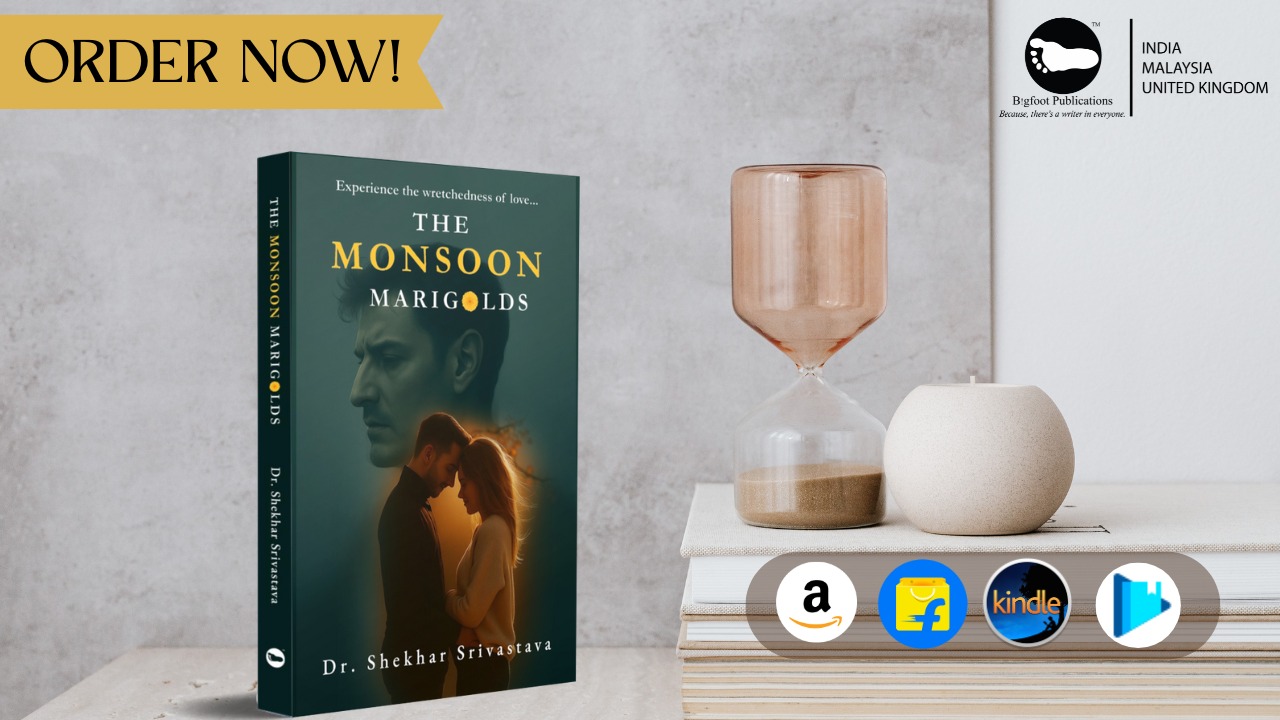The literary landscape is often overrun with imitative love stories. Yet, The Monsoon Marigolds by Dr. Shekhar Srivastava stands out like a fragrant blossom after a long-awaited rain. Rich in emotional texture and brimming with introspective brilliance, it is a slow-burning story of heartbreak and haunting reunions that resonate like the scent of rain on dry earth. Laced with emotional restraint and quiet elegance, the novel reads not just as a romance, but as an ode to the complexities of memory, love, and time’s inevitable erosion of both.
Set against the ever-changing skylines of Delhi and the monsoon-kissed courtyards of Udaipur, the novel traces the journey of Siddhant Mathur, a man in his late thirties — an advertising professional in Delhi who wears his emotional detachment like a second skin. But when Devyani, the only woman who ever truly stirred something real in him, reappears after thirteen years, his carefully drawn boundaries begin to dissolve. What follows is not the standard tale of rekindled romance. Instead, the story is an elegant excavation of what it means to carry love as both a scar and a sanctuary. Their unexpected encounter in a Udaipur bookstore is anything but cinematic: there are no declarations, no teary embraces — only silence, coffee, and the weight of all that was never said.
Siddhant is not an easy character to love, but that’s what makes his emotional thaw so compelling. Through understated scenes — a rain-soaked memory, a shared laugh over forgotten lenses — The Monsoon Marigolds asks us to consider a difficult truth: What happens when you meet the right person at the wrong time, and then again when it’s possibly too late?
Devyani is rendered with grace and subtle power. She is neither a muse nor a manic pixie, but a woman shaped by her own wounds, silences, and strength. Her interactions with Siddhant are charged not with drama, but with deep emotional currents — a familiarity so intimate it aches. Their story is punctuated by long pauses and unfinished thoughts, and yet the reader feels everything. It’s a love story for grown-ups — for people who have been bruised, who carry ghosts in their pockets, who know that love isn’t always loud. Meanwhile, Pooja remains a quiet presence in Siddhant’s office life, a silent contender for the emotional ground he has long abandoned.
The Monsoon Marigolds doesn’t shout to be heard. It whispers, it lingers, and it asks readers to slow down, to sit with discomfort, to read between silences, and to remember that not all love stories need a happy ending to feel complete. Its strength lies in mood and memory. It does not rush toward resolution, nor does it promise redemption. Instead, it offers something far rarer: honesty.
The novel’s title becomes the perfect metaphor: marigolds, with their scent of devotion and decay, bloom each monsoon only to wither again. As monsoon rains fall once more, this novel offers readers the perfect companion — a story that lingers long after the last page is turned.




